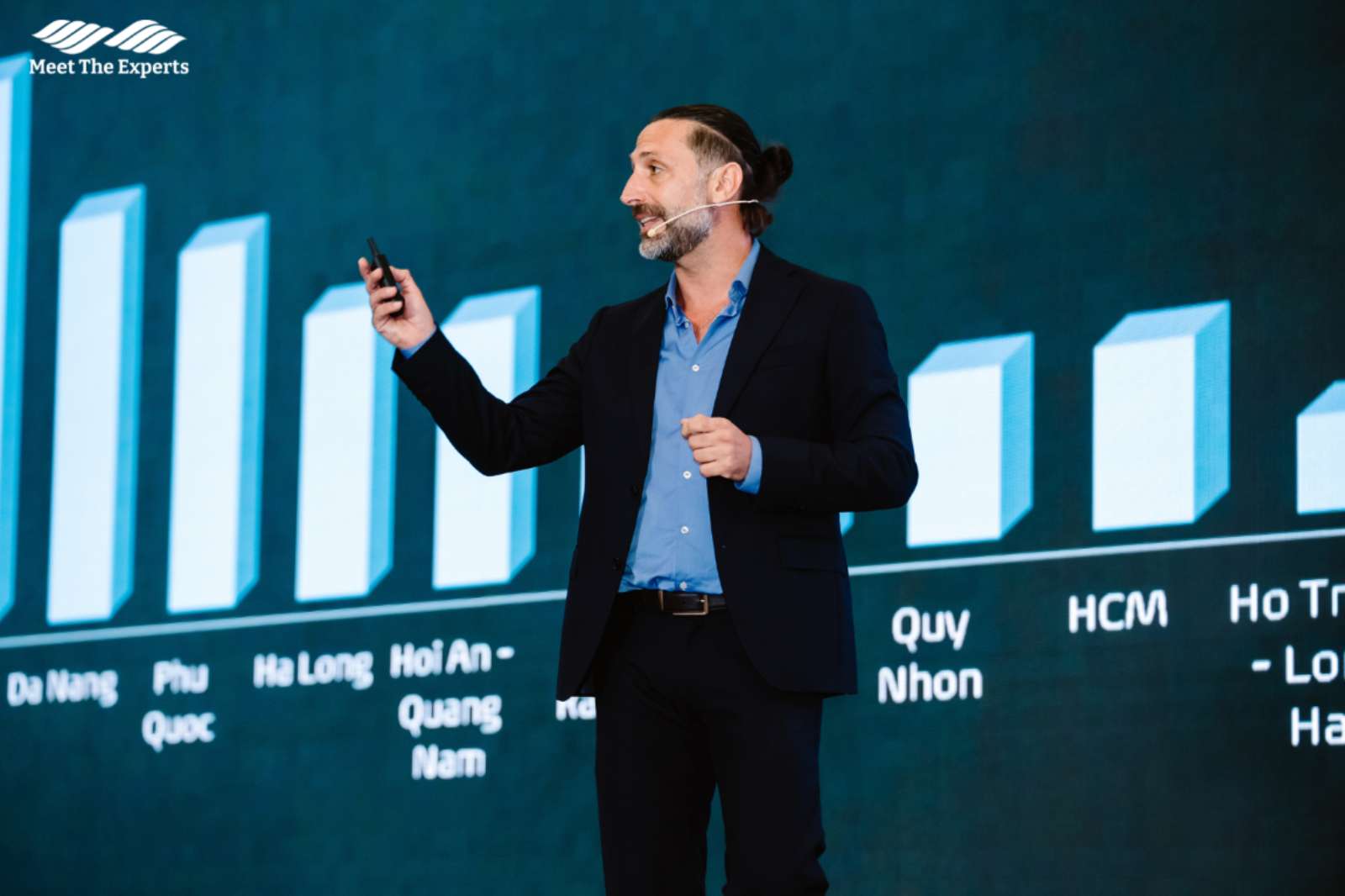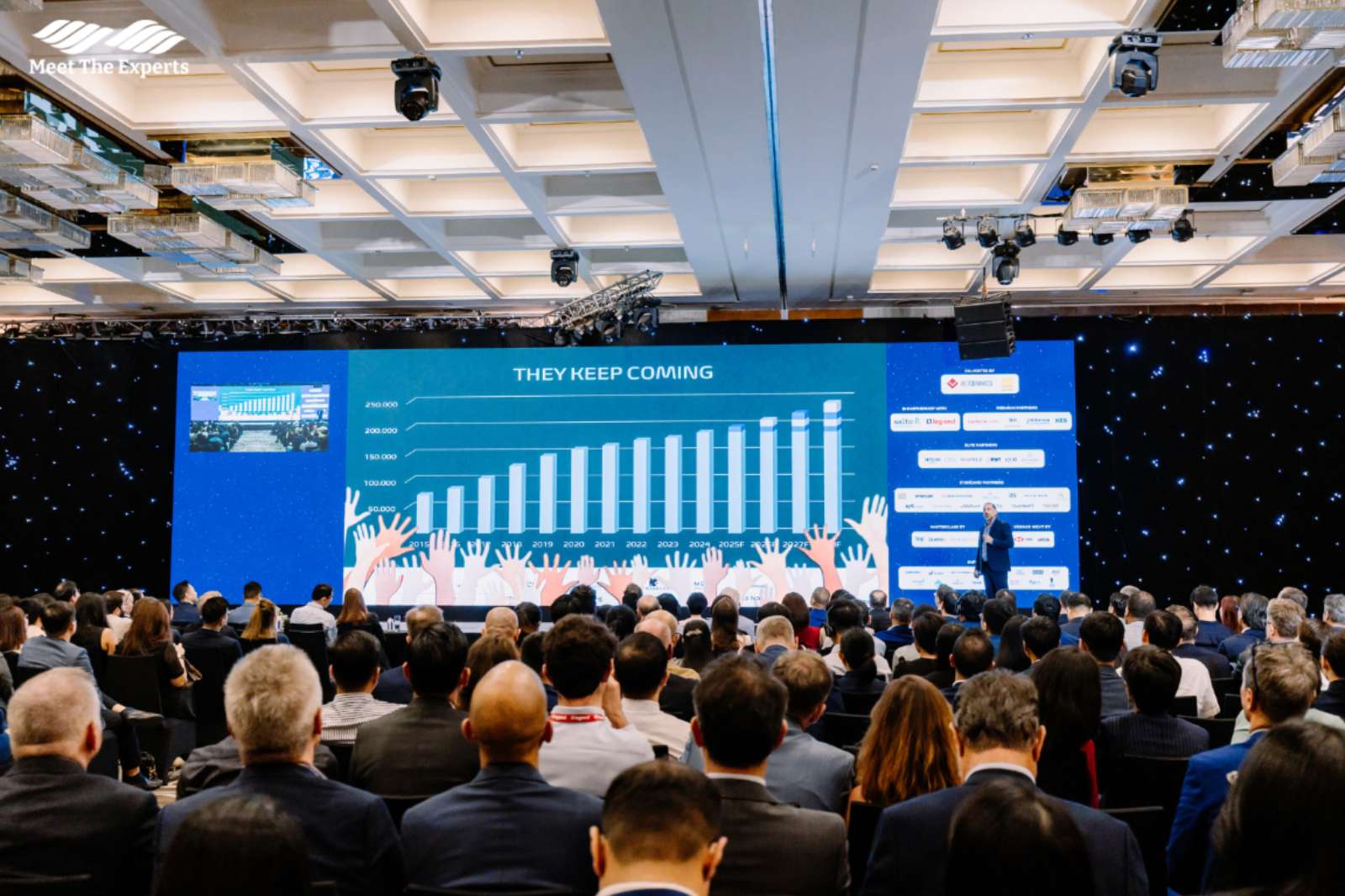Meet The Experts HCM 2025: The way forward fr the Hospitality & Real estate market amid uncertainties
Meet The Experts (MTE), Vietnam’s leading business conference for the real estate and hospitality sectors, took place on 18 March 2025 in HCMC.
Under the theme “The Way Forward for the Hospitality & Real Estate Market Amid Uncertainties,” the biannual event brought together over 60 industry leaders and more than 1,000 professionals, including investors, hotel owners, management companies, design firms, and consultants.
.jpg)
Vietnam’s tourism industry continues to gain momentum, driven by favourable visa policies, improved tourism infrastructure, and strategic marketing efforts from both local authorities and businesses. he country's strong reputation as a welcoming and safe destination further strengthens its global appeal. In the first two months of 2025, Vietnam welcomed nearly four million international arrivals - a 30.2% year-over-year increase, the highest growth rate in the region.
“Vietnam’s hospitality market experienced a strong year, with international tourist arrivals rebounding to pre-COVID levels. Nationwide, hotel occupancy rose by nearly 15 percentage points, while room rates saw an approximate 5% increase, primarily driven by the luxury segment." - Mauro Gasparotti, Senior Director, Head of SE Asia Hotel Advisory and creator of the MTE series, commented.
Key destinations such as Nha Trang–Cam Ranh saw exceptional growth, with accommodated international arrivals surging by 125% year-over-year in 2024. Likewise, Phu Quoc experienced a significant tourism boom in late 2024, fueled by a growing network of direct international flight routes. This positive momentum is expected to continue, particularly as Phu Quoc prepares to host the APEC Summit in 2027, further solidifying its status as a premier global destination.
 Mauro Gasparotti, Senior Director, Head of SE Asia Hotel Advisory at MTE HCMC 2025.
Mauro Gasparotti, Senior Director, Head of SE Asia Hotel Advisory at MTE HCMC 2025.
Vietnam’s tourism landscape is undergoing a rapid transformation, with new business models, brands, and resorts redefining the market. Concepts such as branded residences, ultra-luxury residential developments, rooftop bars, beach clubs, wellness retreats, and all-inclusive resorts illustrate the sector’s dynamic evolution, seamlessly blending luxury, lifestyle, and destination appeal. Meanwhile, emerging technologies like AI are poised to revolutionize travel, streamlining processes and personalizing experiences for both leisure and business travellers. These innovations will drive the next phase of Vietnam’s hospitality and real estate growth, attracting top-tier brands and shaping the industry’s future. "Now is the perfect time to reassess the industry as a long-term investment opportunity” - He continued.
Key Insights and Emerging Trends
At the event, keynote speeches from industry leaders representing HotStats, VinaCapital, Savills Hotels, Minor Hotels, and CMV Architects provided in-depth insights into hotel trading performance on both global and local scales, as well as the real estate landscape from a developer’s perspective. The presentations also highlighted successful case studies of mixed-use and all-inclusive resorts, offering valuable strategies for the future of the hospitality industry.
.jpg)
Senior executives from Accor Hotels Group, Masterise Group, SonKim Land, Sovico Hospitality Group, Minor Hotels, M Village, Fusion Hotel Group, and Club Med further shared their perspectives on Vietnam’s rapidly evolving hospitality market. The panel discussion emphasized the increasing demand for innovative hospitality concepts, including midscale limited-service hotels, all-inclusive resorts, and lifestyle hotels & resorts, which are expanding opportunities for both developers and travellers.
Infrastructure developments are transforming Vietnam’s hospitality landscape, with expansions planned for five airports - Cat Bi, Vinh, Dong Hoi, Ca Mau, and Phu Quoc - to increase capacity. In Ho Chi Minh City, the completion of the first phase of Long Thanh International Airport and its metro connection will significantly improve accessibility for both domestic and international travellers. This enhanced connectivity is expected to drive longer stays, boost hotel occupancy in non-CBD areas, and strengthen the city’s MICE sector.
"Hotels near metro stations, particularly in key commercial and tourist districts, are expected to experience higher demand and stronger room rates. As a result, new hotel developments will likely concentrate around major metro stops, with focused-service and lifestyle hotels leading the way. This may also create opportunities for the luxury hotel segment to expand beyond its current concentration in District 1.” - Uyen Nguyen, Associate Director, SE Asia, Savills Hotels shared.
A Focus on Branded residences & Ultra-luxury
At the MTE Conference, industry leaders highlighted the rapid rise of branded residences and ultra-luxury properties in Vietnam. As the country emerges as a key destination for high-end real estate, experts explored the factors driving this growth, including pricing premiums, buyer expectations, luxury interior design, and the increasing integration of wellness into residential developments. Representatives from Savills, QUO, Group GSA, and Gamuda Land provided valuable insights, offering a comprehensive perspective on Vietnam’s evolving luxury property landscape.
“Buyers today are no longer just seeking property ownership or choosing a brand name—they are looking for a complete lifestyle package. To meet these expectations, developers must embrace wellness elements, sustainable design, and hospitality-inspired services, which are becoming defining features of high-end residential projects. Failing to uphold these standards could impact buyer confidence in the sector as a whole.” - Mauro remarked.
Investment landscape: Strong interest, persistent challenges
Vietnam’s capital markets continue to attract strong interest, particularly from Asian investors and family offices. However, despite this demand, transaction volumes remain limited due to ownership complexities, regulatory challenges, and prolonged negotiation processes. Investors are particularly drawn to prime locations in key cities with strong infrastructure connectivity, prioritizing assets that offer long-term value appreciation and stable demand.
.jpg)
Senior professionals from Savills Vietnam, Lodgis Hospitality, Ares Management, Indochina Capital, Kusto Home, SC Capital and Group GSA provided expert insights into regional investment flows and explored how foreign investors can play a crucial role in redefining Vietnam’s real estate and hospitality landscape. The panel emphasized that strategic partnerships and regulatory improvements will be key in moving the market forward, ensuring sustainable growth and increased investor confidence.
 2025 Meet The Experts Conference in HCMC
2025 Meet The Experts Conference in HCMC
The evolving legal framework and upcoming infrastructure projects, such as Long Thanh International Airport and metro system expansions, could significantly shape investment trends in the coming years, potentially unlocking new opportunities in both the hospitality and real estate sectors.




.jpg)
